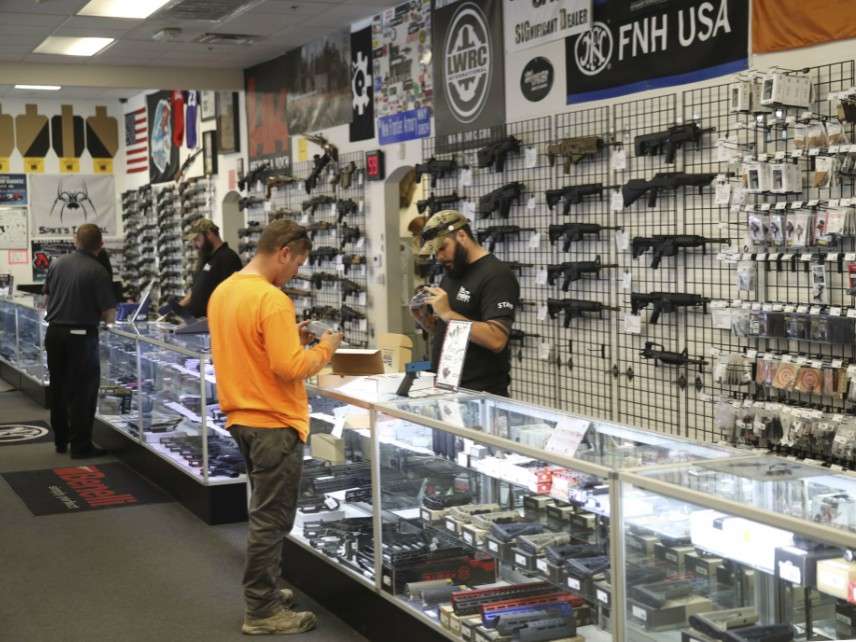If Disqualified Gun Buyers Aren't Dangerous, Maybe They Shouldn't Be Disqualified
Given the arbitrariness of federal criteria for gun ownership, the public safety benefits of background checks are dubious.

Last year the FBI asked the Bureau of Alcohol, Tobacco, Firearms, and Explosives (ATF) to retrieve guns from 4,170 people who were cleared to buy them even though they were disqualified under federal law. USA Today, which reported that number in an "exclusive" last week, sees it as evidence of a broken background check system. But these retrieval referrals also highlight the arbitrariness of the criteria that strip people of their Second Amendment rights.
If the FBI cannot complete a background check on a gun buyer within three days, the dealer is allowed to complete the sale, which is why the ATF is sometimes tasked with seizing guns after the fact. That does not happen very often. The 4,170 "delayed denials" in 2016 represented 0.015 percent of the 27.5 million background checks conducted that year. Judging from the ATF's recent track record, nearly all of the guns will be retrieved.
According to a 2016 report from the Justice Department's inspector general that looked at a sample of 125 delayed denials from 2008 through 2014, the ATF recovered weapons in 116 cases. In two cases, the gun owners already had resold the weapons, and in one case "the matter was referred to local authorities after the subject was arrested by them on unrelated charges." In five cases, "the subjects could not be located," and in one case "the ATF office explained that due to competing priorities it did not have the resources to retrieve the firearm." In other words, the illegal gun owners were disarmed 95 percent of the time. But the public safety benefit of those efforts is debatable, because the reasons people are forbidden to own guns often have little or nothing to do with the threat they pose.
A 2004 report from the DOJ inspector general noted that there were often delays in retrieving weapons from prohibited buyers, partly because "ATF special agents did not consider most of the prohibited persons who had obtained guns to be dangerous and therefore did not consider it a priority to retrieve the firearm promptly." It's no wonder, given the factors that make people ineligible to own guns, which include any felony record, whether or not the crime involved violence and regardless of how long ago it was committed; a history of forcible psychiatric treatment, whether or not the buyer was deemed a threat to others and regardless of how much time has elapsed; living in the United States without the government's permission, which has nothing to do with violent tendencies; and federally prohibited use of a controlled substance, even when it is allowed by state law.
The 2004 report noted that gun buyers who fail background checks before completing their purchases are rarely prosecuted, even though all of them, on the face of it, have committed felonies by making false statements on the ATF form they filled out while trying to buy a firearm. The FBI blocked 122,000 gun sales in 2002 and 2003, which represented 0.7 percent of background checks. Only 154 of the would-be gun owners—0.1 percent—were prosecuted. According to the 2016 report, prosecution rates in more recent years have been even lower. "These cases lack 'jury appeal' for various reasons," the 2004 report noted. One of those reasons: "The factors prohibiting someone from possessing a firearm may have been nonviolent or committed many years ago."
If most people who are forbidden to own guns by federal law do not strike ATF agents or jurors as dangerous, maybe there is something wrong with the law. The scandal is not lackadaisical ATF agents, negligent prosecutors, or apathetic jurors; it is the casual ease with which the government deprives people of the fundamental right to armed self-defense.


Show Comments (34)